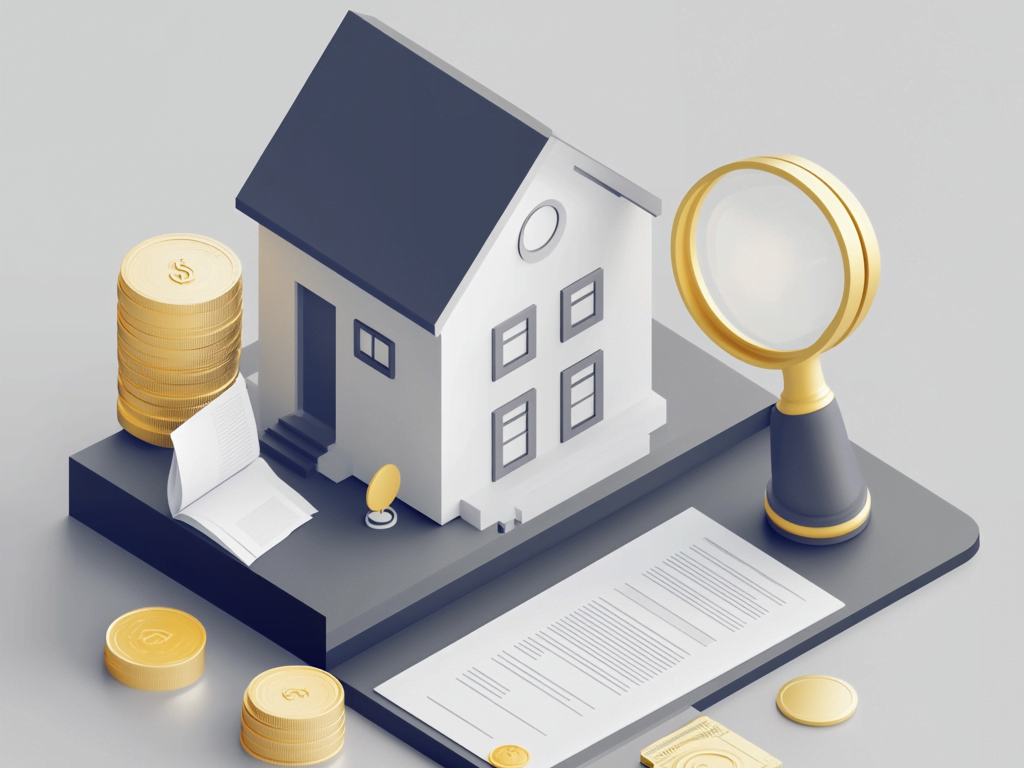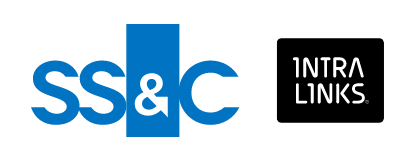Navigating real estate transactions — whether buying, selling, or merging — requires sharp attention to detail. For seasoned real estate professionals, the due diligence process is the backbone of a successful deal. As real estate projects grow more complex, the focus on estate due diligence is intensifying, with 73% of investment professionals predicting it will become even more critical in the next year. Rising deal costs, tax risks, and potential liabilities are driving this change, making efficient tools like real estate due diligence software solutions essential.
This guide dives into the why and how of modernizing the diligence process, offering insights for professionals ready to tackle today’s challenges head-on.

What is real estate due diligence software?
Due diligence software for real estate is more than a tool — it’s a critical asset for modern transactions. By automating tasks like risk analysis, document management, and compliance tracking, it transforms the once labor-intensive due diligence in real estate into a streamlined, highly efficient workflow.
Advanced software solutions leverage AI and machine learning to flag potential red flags, such as zoning violations, outdated property records, or inconsistencies in financial data. Integration with external platforms, like GIS mapping tools or tax databases, ensures users have access to up-to-date and comprehensive insights.
Given that 30% of commercial real estate deals fall apart during the diligence phase, due diligence tools are essential for navigating challenges like environmental risks, title defects, and legacy liabilities. Beyond addressing these hurdles, tools for due diligence offer full visibility into every aspect of a transaction. Customizable dashboards and real-time analytics allow stakeholders to monitor progress, mitigate risks, and make more informed decisions with confidence.
Designed for scalability, these platforms can handle multiple real estate portfolio assets and complex deal structures, adapting seamlessly to the needs of investors, brokers, and legal teams. For seasoned professionals, it’s the difference between guesswork and certainty, offering a complete solution for managing even the most intricate real estate transactions.
Key features that make diligence software easier
The best software for due diligence goes beyond automation, delivering smarter, more efficient workflows tailored for complex real estate transactions. Here are the key features that set it apart:
- Centralized data management: A single platform consolidates all documents, providing for secure file sharing and streamlined access. Advanced search and indexing capabilities ensure users can quickly locate relevant information, even in large-scale real estate projects.
- Automated risk assessment: Sophisticated algorithms identify potential issues in ownership records, financial data, and contract details, significantly reducing manual oversight and minimizing errors.
- Regulatory compliance tracking: Real-time monitoring ensures alignment with zoning regulations, tax codes, and cross-border compliance standards, addressing issues that affect 50% of international deals.
- Integration with virtual data rooms (VDRs): Seamless connectivity to VDR platforms enables secure storage, collaboration, and document sharing with customizable access for different parties.
These tools also ensure property details and compliance tasks remain up to date, reducing delays and risks in high-stakes transactions. By eliminating inefficiencies and consolidating workflows, diligence software delivers full oversight and reliability, even in the most demanding real estate projects.
| 🔎 READ MORE: The role of M&A in real estate transactions |
How virtual data rooms complement due diligence software
Ideals

- Access controls
- Built-in viewer
- Full-text search
- Auto-indexing
- Customizable branding
- Advanced Q&A
- In-app live chat support 24/7
- 30-second chat response time
Dealroom

- Access controls
- Built-in viewer
- Full-text search
- Auto-indexing
- Customizable branding
- Advanced Q&A
- In-app live chat support 24/7
- 30-second chat response time
Citrix

- Access controls
- Built-in viewer
- Full-text search
- Auto-indexing
- Customizable branding
- Advanced Q&A
- In-app live chat support 24/7
- 30-second chat response time
Box

- Access controls
- Built-in viewer
- Full-text search
- Auto-indexing
- Customizable branding
- Advanced Q&A
- In-app live chat support 24/7
- 30-second chat response time
Intralinks

- Access controls
- Built-in viewer
- Full-text search
- Auto-indexing
- Customizable branding
- Advanced Q&A
- In-app live chat support 24/7
- 30-second chat response time
Virtual data rooms (VDRs) are critical companions to due diligence software, bringing additional layers of functionality and security to complex transactions. While diligence software automates key processes like analysis, compliance tracking, and risk assessment, VDRs provide a secure, centralized platform for document management, sharing, and collaboration. Essentially, each data room in real estate acts as a one-stop shop for all processes related to dealmaking — from real estate document organization to sharing, advanced tracking, collaborating, and more.
In large-scale deals such as commercial real estate transactions or mergers involving multiple portfolio assets, VDRs streamline workflows by offering:
- Customizable permissions: Tailored access controls ensure only relevant parties can view or modify sensitive financial information and property details, maintaining confidentiality and reducing the risk of data breaches.
- Audit trails: Detailed logs track all the information on interactions with files, including views, uploads, and edits, giving decision-makers complete visibility into who accessed specific files and when.
- Efficient communication: Integrated messaging features and annotation tools enable parties involved to provide feedback or request clarifications directly within the platform, minimizing miscommunication.
- Cross-border collaboration: VDRs facilitate secure document sharing across jurisdictions, crucial for deals involving international real estate projects with differing regulatory requirements.
By integrating with due diligence software, VDRs enhance productivity in time-sensitive transactions. For example, in deals with stringent compliance deadlines, automated notifications help keep decision-makers informed and up to date. Advanced search functionality within the data room further accelerates the deal by allowing users to locate specific documents, contracts, or clauses instantly.
| 🔎 READ MORE: Due diligence checklist for real estate |
Additionally, VDRs support the scalability required for managing diverse assets, from small properties to extensive portfolios. Their ability to store, categorize, and organize large volumes of documents in a secure environment ensures that no information is overlooked. This seamless synergy between due diligence software and virtual data rooms empowers professionals to conduct thorough, efficient, and risk-free diligence processes, ultimately driving better outcomes in high-stakes transactions.
The benefits of modern diligence tools
Why switch to tech-driven diligence tools? The advantages speak for themselves:
- Save time: Automation eliminates repetitive, time-consuming tasks in the diligence process, such as manually reviewing contracts or tracking compliance requirements. Advanced features like bulk document uploads, automated indexing, and instant search capabilities free up time for professionals to focus on strategy and high-value decision-making.
- Cut costs: Diligence software mitigates risks associated with errors, overlooked details, or miscommunications that often lead to legal disputes or financial penalties. By preventing costly mistakes, these tools offer a cost-effective way to manage transactions, particularly in large-scale deals where operational inefficiencies can escalate quickly.
- Boost security: Sophisticated encryption protocols, customizable permissions, and audit trails ensure sensitive financial information, property information, and transaction data remain protected. These features are especially critical in cross-border deals, where regulatory compliance and data security standards vary by jurisdiction.
- Enhance collaboration: Centralized platforms with integrated communication tools allow relevant parties to communicate effectively, track progress, and address issues in real time. This transparency reduces delays and keeps the diligence process on track, even in complex transactions involving multiple decision-makers.
- Scale with ease: Modern solutions are designed for flexibility, accommodating everything from single-property acquisitions to large-scale portfolio management. They support dynamic growth, adapting seamlessly to handle increasing document volumes, asset types, or transaction complexities.
- Ensure accuracy and compliance: Automated compliance tracking keeps professionals up to date with local, national, and international regulations. Built-in tools for verifying zoning laws, tax codes, and environmental standards reduce the risk of oversight and provide confidence in legal and operational compliance.
- Improve decision-making: Real-time dashboards and analytics deliver actionable insights, giving professionals full visibility into risks, opportunities, and progress. This level of transparency enables stakeholders to make better decisions with all the necessary data at their fingertips.
In an industry where 46% of professionals cite deal structure as key to long-term growth, diligence tools ensure no detail is missed. By integrating automation, scalability, and advanced analytics, these tools provide a complete system for managing even the most intricate transactions efficiently and effectively.
The result? Smoother workflows, reduced risk, and a higher likelihood of transaction’s positive outcome.
Tackling common challenges head-on
Real estate transactions, no matter their size or scope, are fraught with challenges. While each deal is unique, certain obstacles tend to recur, often jeopardizing outcomes if not managed proactively. Here are some of the most common issues and how diligence software provides solutions:
- Cross-border tax issues: With 50% of international deals encountering tax complications, navigating the intricacies of foreign regulations and tax codes can be daunting. Modern diligence solutions integrate compliance tracking and reporting tools to streamline the identification of potential tax risks. By providing up-to-date tax data and jurisdiction-specific guidelines, these tools help ensure regulatory adherence across borders.
- Legacy liabilities: Previous owners’ unresolved regulatory non-compliance impacts 35% of deals, posing hidden risks that can surface post-transaction. Diligence software conducts thorough reviews of ownership records and historical documents, flagging red flags like unpaid fines, unresolved legal disputes, or outstanding maintenance obligations. Early identification allows real estate professionals to mitigate these risks before finalizing the deal.
- Environmental concerns and title defects: Environmental risks, such as contamination or hazardous materials, derail 35% of deals, while title defects — from boundary disputes to lien — account for 25%. Advanced diligence tools integrate geospatial data and environmental assessments, offering insights into zoning, site history, and compliance with environmental standards. Title tracking features highlight inconsistencies or encumbrances in property records, enabling quick resolution.
How diligence tools address challenges
With diligence software, professionals gain access to features specifically designed to address these challenges effectively:
- Automated document review: Identify inconsistencies in records, title histories, and compliance documents without manual effort.
- Regulatory updates: Ensure compliance with evolving local, national, and international regulations using tools that provide real-time alerts and updates.
- Scenario analysis: Simulate potential financial and legal risks, helping stakeholders in their decision-making process during negotiations.
- Centralized access: A centralized platform ensures all parties involved have consistent and secure access to relevant information, reducing communication gaps.
By leveraging these capabilities, real estate professionals can anticipate obstacles, resolve issues proactively, and negotiate with confidence. Modern diligence solutions not only prevent surprises but also pave the way for smoother, more efficient transactions.
Increasing focus on due diligence: Why it matters for real estate
As real estate projects grow in scale and complexity, professionals face mounting challenges like rising deal costs, legacy liabilities, and stricter regulations. These factors are driving the adoption of advanced diligence software that integrates portfolio management, compliance tracking, and enhanced document views.
Tools like due diligence software provide centralized access to critical data, offering full visibility into every transaction step. By automating risk identification and compliance monitoring, these tools enable decision-makers to mitigate risks such as tax discrepancies or regulatory violations proactively. Real-time insights and scenario analysis empower professionals to address uncertainties, ensure adherence to evolving regulations, and make proper decisions.
For high-stakes business deals involving multiple portfolio assets, having robust systems in place reduces errors and delays while optimizing workflows. The ability to manage complexity, anticipate risks, and adapt quickly makes modern diligence software indispensable for achieving transaction success in today’s competitive landscape.
The bottom line
Modern due diligence software is essential for navigating the complexities of today’s real estate transactions. By automating processes, providing centralized access to critical data, and enabling real-time collaboration, these tools empower professionals to manage risks, ensure compliance, and confident business decisions.
For those aiming to improve real estate workflows, reduce costs, and increase transaction success, adopting advanced diligence solutions is no longer optional — it’s essential.